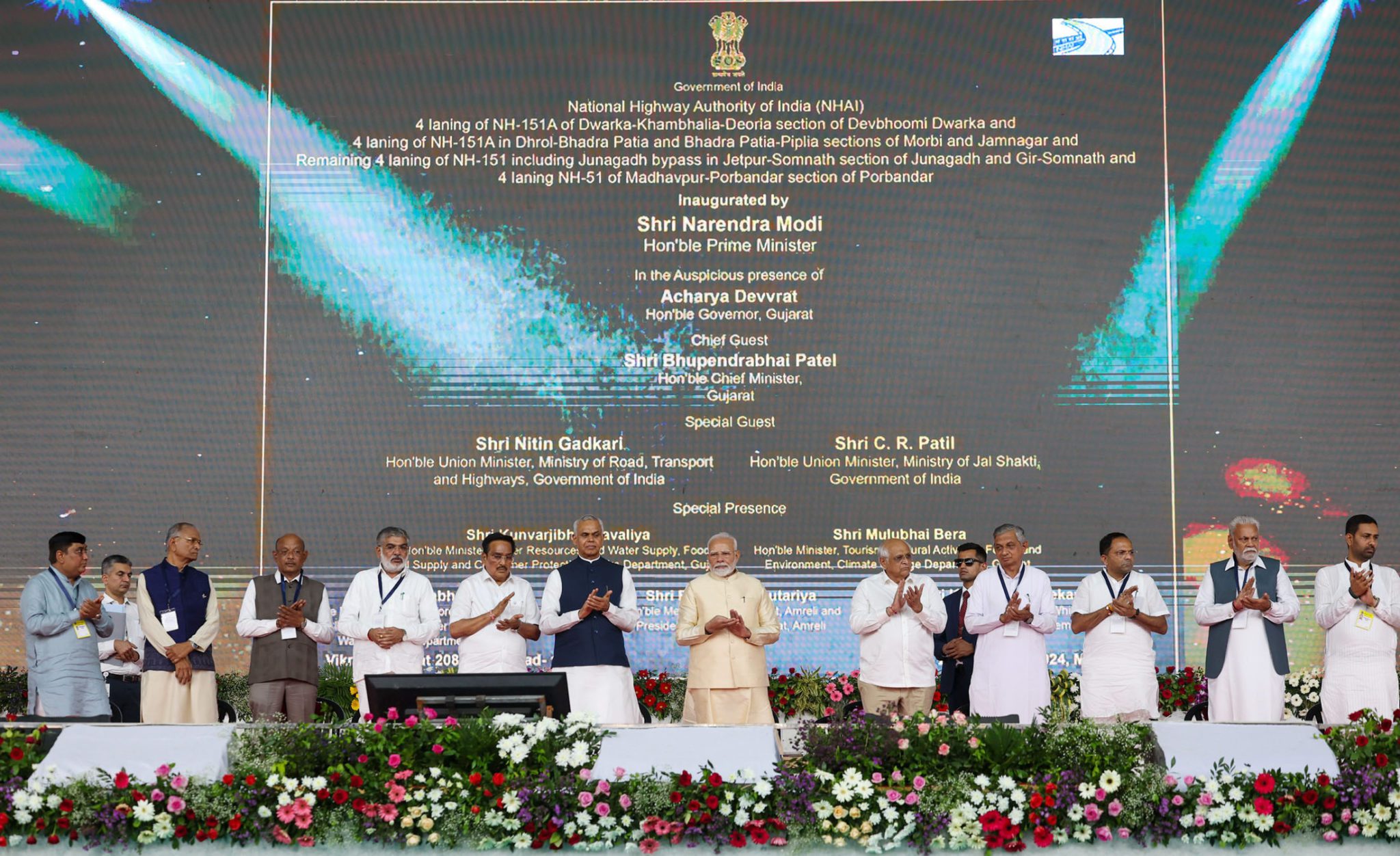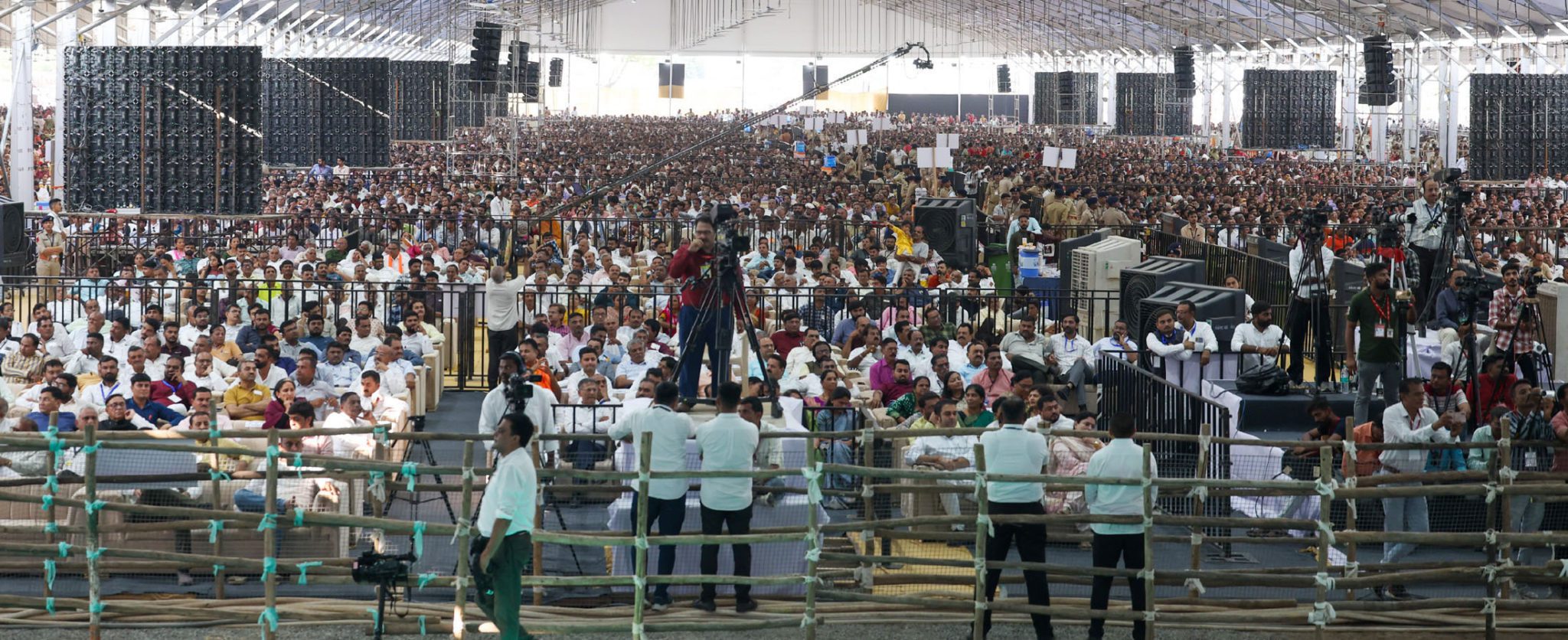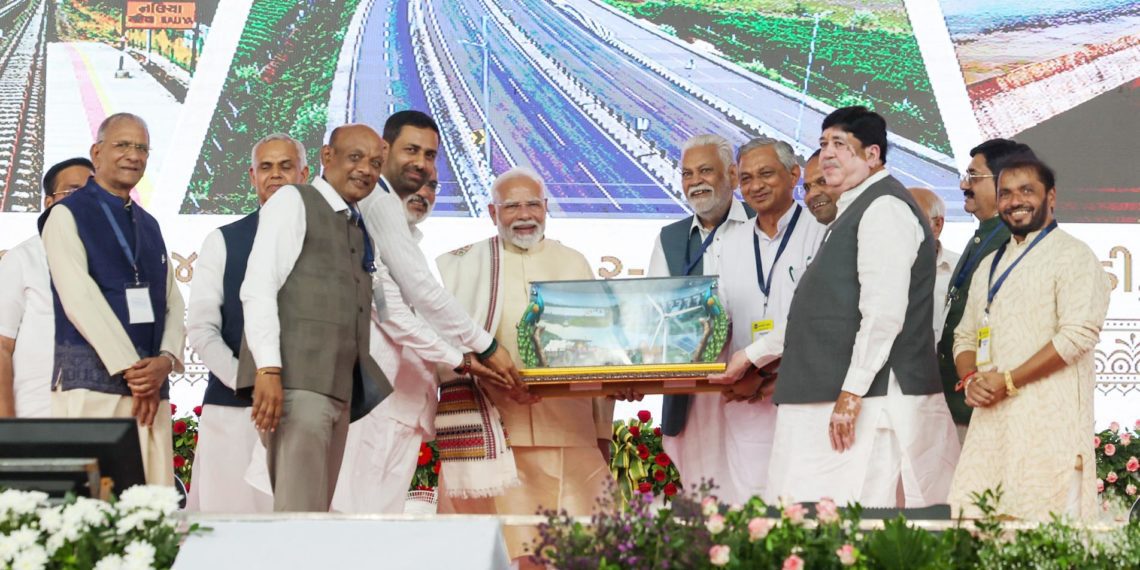Prime Minister Narendra Modi on Monday attended a significant event in Amreli, Gujarat, to inaugurate and lay the foundation for multiple development projects totalling over Rs 4,900 crore. The projects, spanning road, rail, water supply, and tourism sectors, aim to boost infrastructure and improve living standards for the people of Amreli and surrounding districts, including Jamnagar, Junagadh, and Kutch.
Addressing a large gathering, Modi emphasized that these initiatives would accelerate regional growth, enhance agricultural productivity, and create new employment opportunities for the youth.
A key highlight of the event was the presence of notable dignitaries, including Gujarat’s Governor Acharya Devvrat, Chief Minister Bhupendra Patel, Union Minister C.R. Patil, and NCUI President Dileep Sanghani. Sanghani, a prominent leader in the cooperative movement.
On the occasion, Modi specifically highlighted Amar Dairy, a cooperative in Amreli that has seen significant growth since its inception in 2007. Originally comprising 25 village committees, Amar Dairy has expanded to over 700 cooperative societies, collecting approximately 1.25 lakh liters of milk daily.
Modi credited this success to the dedicated efforts of local communities and the support from cooperatives, underlining the importance of cooperative movements in achieving self-reliance in rural India. It bears recalling that Dileep Sanghani, IFFCO Chairman played a crucial role in its establishment.


The Prime Minister also highlighted Amar Dairy’s growth as a shining example of local empowerment through cooperatives, particularly in the dairy sector, which has seen substantial development due to the efforts of the Gujarat government and local leaders like Sanghani.
Another major project announced was the Navda-Chavand Bulk Pipeline, which will supply an additional 30 crore liters of water daily to drought-prone regions. This pipeline is expected to benefit approximately 1,300 villages and over 35 cities, including those in Amreli, Botad, Junagadh, Rajkot, and Porbandar. Modi noted that this initiative would significantly improve water availability in these regions, helping farmers, easing water scarcity, and supporting local agriculture.
The Prime Minister also touched upon the “Catch the Rain” campaign, an initiative aimed at conserving water through community participation. He highlighted how this campaign is gaining momentum in states like Rajasthan and Madhya Pradesh, where locals are actively building recharge wells to store rainwater. Modi emphasized the need for grassroots involvement in water conservation to ensure sustainability for future generations.
Modi additionally praised Amreli’s rapid progress in solar energy. He cited Dudhala village as an example, where households have installed solar panels, saving approximately Rs 75,000 per month in electricity costs. This model, he said, would soon make Dudhala the first solar-powered village in Amreli, setting an example for sustainable rural development.
Concluding his address, the Prime Minister reiterated his vision of a “Viksit Bharat” (Developed India), driven by the growth of regions like Gujarat. He stated that infrastructure improvements, such as better roads, railways, and water supply, are essential to achieving this vision.
The event underscored the government’s commitment to rural development and its efforts to bridge the urban-rural divide. The presence of leaders like Sanghani at the event highlighted the vital role cooperatives play in empowering rural communities and enhancing economic resilience in districts like Amreli.






















































